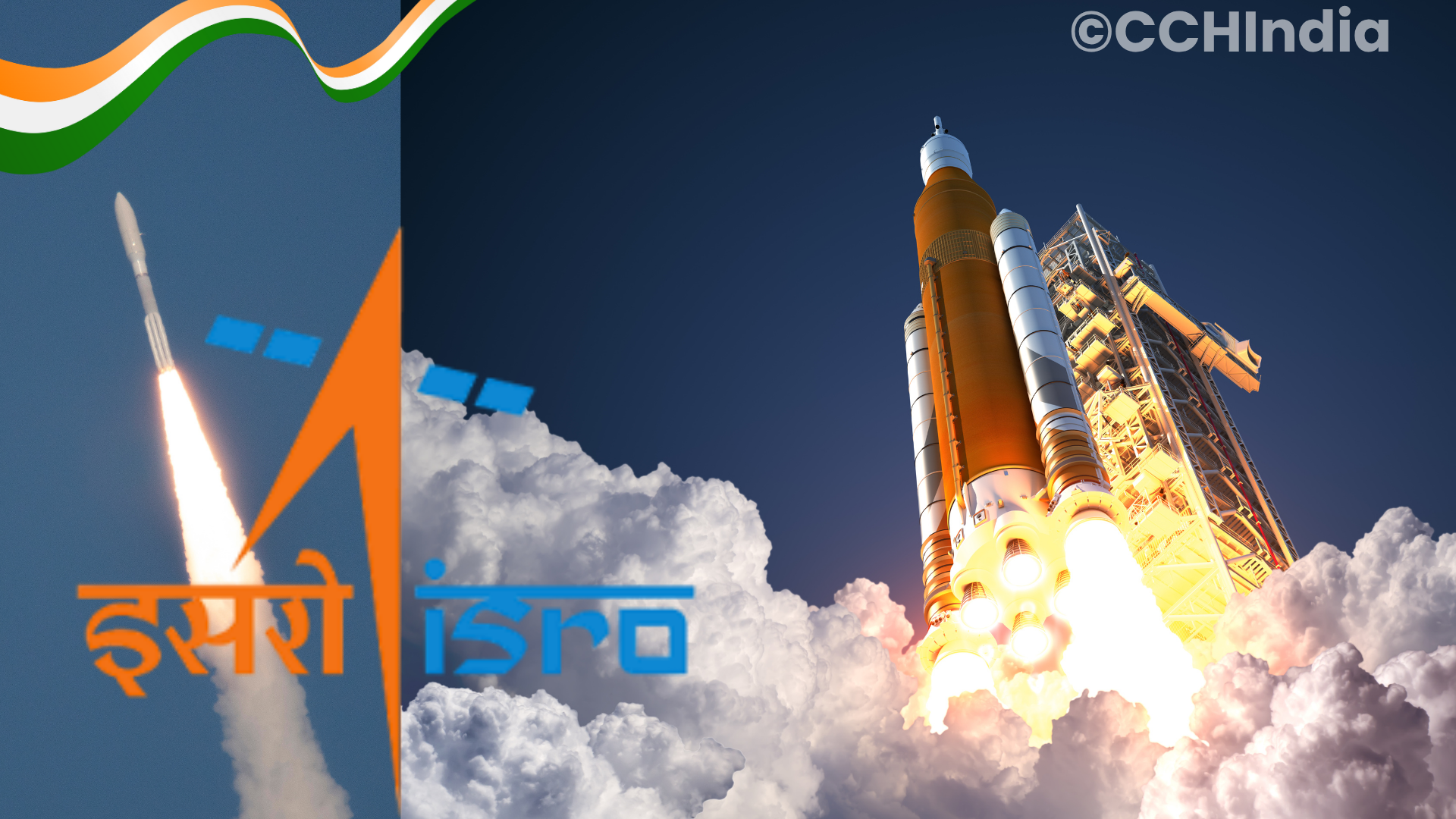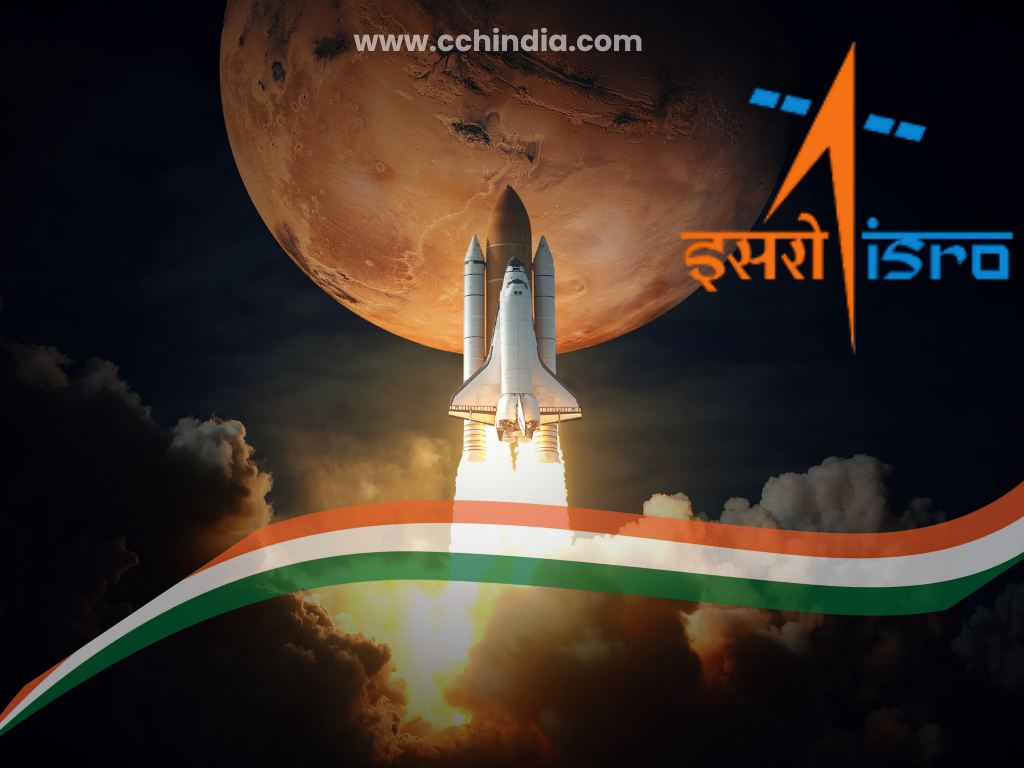India Allows 100% Foreign Direct Investment (FDI) in the Space Sector
Important facts positioning Indian space sector as a lucrative option for Foreign Direct Investments (FDI)

ISRO’s growing commercial ventures like NSIL and Antrix are redefining India’s role in the global space economy. Explore how these initiatives are boosting India’s geo-strategic strength and global influence.
When we think of ISRO, the first image that usually comes to mind is of rockets soaring into the sky, carrying India’s pride and scientific genius. But in recent years, ISRO has been doing more than just launching satellites — it’s been strategically positioning India as a global space power through its commercial ventures.
And this shift isn’t just about making money; it’s about shaping India’s influence on the world stage.
Table of contents [Show]
For decades, ISRO was known for its budget-friendly, high-precision missions — from Chandrayaan to Mangalyaan — that stunned the world with their efficiency. But now, India’s space agency is tapping into a different kind of orbit — the commercial space market, which is projected to touch $1 trillion globally by 2040.
To tap this opportunity, ISRO launched two commercial arms:
Antrix Corporation (founded in 1992) — the original interface for commercial satellite launches and services.
NewSpace India Limited (NSIL, established in 2019) — the new-generation venture designed to handle end-to-end satellite launches, technology transfers, and partnerships with private companies.
These organizations are not just business entities; they are instruments of geo-economic and diplomatic strategy.
Every satellite launched for another country carries more than just hardware — it carries trust, collaboration, and influence.
India has already launched over 400 foreign satellites from countries like the United States, France, the UK, and Singapore. Each of those launches deepens India’s ties with those nations and positions ISRO as a reliable, low-cost space partner.
That’s a quiet but powerful form of soft power — one where India becomes a go-to player for countries looking to access space without depending on traditional giants like the US or Russia.
In the modern world, space isn’t just about science — it’s about strategy and security. Satellites play crucial roles in navigation, defense, climate monitoring, and communication.
By developing its own technology and offering it globally, India reduces its dependence on others while expanding its influence.
Think about it — when a small nation in Asia or Africa relies on India for satellite launches or data, it’s not just a business deal. It’s a strategic alliance, built quietly through cooperation rather than confrontation.
NSIL has been at the center of India’s recent commercial breakthroughs. One of its major milestones was the launch of GSAT-24, a fully dedicated commercial communication satellite leased to Tata Play.
This model — where private players finance and use ISRO’s assets — shows a new level of synergy between public expertise and private enterprise.
NSIL has also been handling launches of foreign satellites using ISRO’s Polar Satellite Launch Vehicle (PSLV), which has become a favorite for international customers because of its reliability and cost-effectiveness.
In a world where technology defines global power, space technology is the crown jewel. ISRO’s collaborations are helping India strengthen its tech diplomacy, building friendships based on innovation rather than ideology.
India’s partnerships with countries in South America, Southeast Asia, and Africa through satellite data sharing and navigation services (like NavIC) are opening new diplomatic doors.
These partnerships enhance India’s geo-strategic reach, especially in regions where big powers like China and the US are competing for influence.
The government’s recent decision to open space technology to private companies has unleashed a wave of innovation. Startups like Skyroot Aerospace, Agnikul Cosmos, and Pixxel are entering the scene, creating a vibrant ecosystem that complements ISRO’s legacy.
Together, they’re shaping an India that’s not just participating in the global space economy but leading it.
ISRO’s commercial expansion is as much about economics as it is about geo-strategy. The revenue generated through satellite launches, data sales, and tech transfers strengthens India’s space budget while demonstrating its capability to compete globally.
At the same time, every partnership, every foreign launch, and every successful mission helps project India as a technological and diplomatic power that can balance affordability with reliability — something few others can match.
As India eyes 2047 — its centenary of independence — ISRO’s commercial ventures symbolize a bold new vision: an India that builds, collaborates, and leads in the most strategic domain of all — space.
With upcoming missions like Gaganyaan and Chandrayaan-4, combined with a growing network of commercial contracts, India is not just aiming for the stars — it’s using them to shape its destiny on Earth.
ISRO’s commercial ventures are more than scientific achievements; they’re the economic and diplomatic engines of a rising global power.
Through smart commercialization, strategic collaboration, and technological excellence, India is turning its space program into a geo-strategic asset — one that not only uplifts its economy but also redefines its place in the world order.
In a world where influence often travels faster than rockets, ISRO has found the perfect orbit — where business, science, and strategy all align.
click here to Read about chandrayaan-4 Mission

Important facts positioning Indian space sector as a lucrative option for Foreign Direct Investments (FDI)

Indian Space Research Organisation has many categories of satellites and spacecrafts for it’s space missions and applications.

Global Positioning System, famously known through it’s abbreviation GPS is a mature navigation system designed by the US for the global adaptation and use. NAVIC (Navigation with Indian Constellation), is a relatively newer navigation system design by India for it’s own regional use.

भारत अंतरिक्ष विज्ञान में नए मुकाम छू रहा है — चंद्रयान-3 की ऐतिहासिक लैंडिंग, चंद्रयान-4 की महत्वाकांक्षी योजना, और गगनयान मानव मिशन इसके प्रमाण हैं। जानिए कैसे ISRO बना रहा है भारत को स्पेस सुपरपावर।

